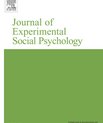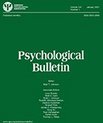Do Economists Punish Less?
IMC Seed funded project published results in the journal Games

IMC seed funding no 2017-143, Prosocial behaviour and norm enforcement among the ‘social’ sciences
Jonas Pilgaard Kaiser and Kasper Selmar Pedersen, two bachelor students in Economics and Business, had learned about research on differences in behavior in lab studies between economists and non-economists. They noticed that the literature centered around prosocial behavior but that there was no study related to norm enforcement. This seemed like an important gap, given that the literature sees the willingness to sanction non-cooperative behavior as crucial for maintaining social order and for sustaining the provision of public goods. So Jonas and Kasper thought this would be a great bachelor thesis project. After the thesis was completed, they wrote up a paper with their advisor Alexander Koch, which was published in the journal Games. The research studies the decision whether to engage in costly punishment of a free rider in a survey-based experiment with 1423 students from seven study areas in the social sciences, as well as medicine at Aarhus University. Using a dictator game and a social dilemma game, that captures essential features of the public goods game, the study replicates previous findings that economics students give significantly less than students from other disciplines. However, when subjects decide whether or not to punish a free rider, the study finds that economics students are just as likely to punish as students from other disciplines. This result qualifies the debate on behavioral differences between economists and other disciplines. The literature has focused on games where prosocial behavior is manifested in giving to others or contributions to public goods. Here, economists often contribute less than others, which suggests that economic reasoning may harm (conditional) cooperation and lead to lower provision of public goods. However, real-life social dilemmas typically offer agents an opportunity to punish free riders. Once this aspect is considered, the findings in the study offer a less pessimistic view that the presence of economists may not alter cooperation in social dilemmas all that much, because economists are just as willing to punish free riders.
Abstract
A number of studies discuss whether and how economists differ from other disciplines in the amount that they contribute to public goods. We view this debate as incomplete because it neglects the willingness to sanction non-cooperative behavior, which is crucial for maintaining social order and for sustaining the provision of public goods. We study the decision whether to engage in costly punishment of a free rider in a survey-based experiment with 1423 students from seven study areas in the social sciences, as well as medicine at Aarhus University, Denmark. Using a dictator game and a social dilemma game, that captures essential features of the public goods game, we replicate previous findings that economics students give significantly less than students from other disciplines. However, when subjects decide whether or not to punish a free rider, we find that economics students are just as likely to punish as students from other disciplines.
Article
Kaiser, J.P.; Pedersen, K.S.; Koch, A.K. Do Economists Punish Less? Games 2018, 9, 75.
https://www.mdpi.com/2073-4336/9/4/75
Contact
Professor Alexander Koch, Dept. of Economics and Business Economics



